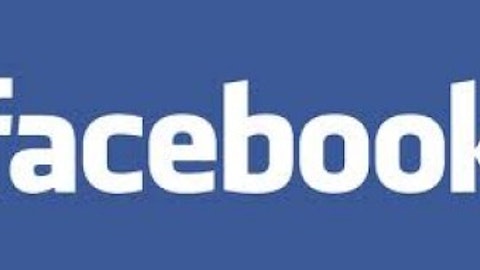
A short prelude
Social media has driven the expansion of the internet into our everyday lives with creations like Facebook Inc (NASDAQ:FB), encouraging the traditional denizens of the internet such as Yahoo! Inc. (NASDAQ:YHOO) and Google Inc (NASDAQ:GOOG) to adapt their revenue model as the market landscape changes.
Google’s famous ‘ads in the search engine listing’ model turned a once small startup by two students into a multi-billion dollar corporation. Yahoo! Inc. (NASDAQ:YHOO) embraced this model, but fell by the wayside, failing to innovate effectively and remain relevant in an environment where change occurred quickly, while Google succeeded and went through several iterations of its search engine and ‘AdWords’ advertising service.
Facebook Inc (NASDAQ:FB) embraced a variant of Google Inc (NASDAQ:GOOG)’s model, including advertising on all of its pages. Like Yahoo, however, Facebook Inc (NASDAQ:FB) has witnessed what can only be described as a fall from grace. In the months after its IPO (valued at roughly $38 a share) the stock price had plummeted to $20.01 per share on August 20, 2012.
Now we are witnessing an industry trend where mobile advertising is being targeted for growth as desktop advertising enters maturity.
So why is Facebook set for success?
Despite these setbacks, Facebook Inc (NASDAQ:FB)’s management turned this debacle into a swift recovery, with the share price sitting at around $34.66 as of the July 26. This has occurred as a result of Facebook’s realization that its future is dependent on mobile advertising rather than desktop advertising.
Facebook Inc (NASDAQ:FB) stated in its second quarter report that 41% of advertising revenue was mobile, and that it expected revenue from mobile advertising to overtake traditional desktop advertising in the coming months. The second quarter was also Facebook’s highest quarterly revenue to date, coming in at $1.81 billion.
This is the news hopeful investors have been waiting on for almost a year now. Coupled with Facebook Inc (NASDAQ:FB)’s acquisition of ‘Instagram,’ a mobile social media application with a reported 130 million users as of July, the company is making preparations to build an established and significant foundation in the mobile advertising market. Meanwhile, the likes of Google and Yahoo! are scrambling to bring about solutions to monetize their own mobile services properly.
Facebook’s advantage in this David and Goliath story is in its data. The organization has been relentless in obtaining information about its users interests, hobbies and other relevant data that search engines do not have access to. This is in part due to the difference in the level of user interaction between social media and search engines. This gives Facebook a strong competitive advantage in the mobile market as it has essentially been data mining a pool of 1 billion users since the beginning of 2013.
Google’s grasp on the market
As demonstrated by Google Inc (NASDAQ:GOOG)’s results for the second quarter, analysts are questioning just how Google is going to improve monetization of its mobile advertising to buffer the effects of its ailing desktop revenue. The issue being that historically mobile advertising has a lower click through and conversion rate when compared with desktop advertising.
Comparing Facebook to Google, Facebook’s advertising has historically been more affordable than Google, who, given its position in the industry is used to charging a premium. The other issue with Google is that the turnaround for measuring success is slow due to the size of its operations. Google’s chief business officer, Nikesh Arora stated, “Google is in the early stages of enhanced campaigns and it will most likely take a year for the results to become apparent.”
With Facebook picking up momentum Google needs to act fast to ensure it can retain the 55% of the mobile market it currently owns. According to eMarketer, Facebook is expected to hold 13% of mobile advertising market share by the end of this year, with $2 billion in revenue for the year 2013 – an astounding gain considering Facebook earned no mobile revenue in 2011.





